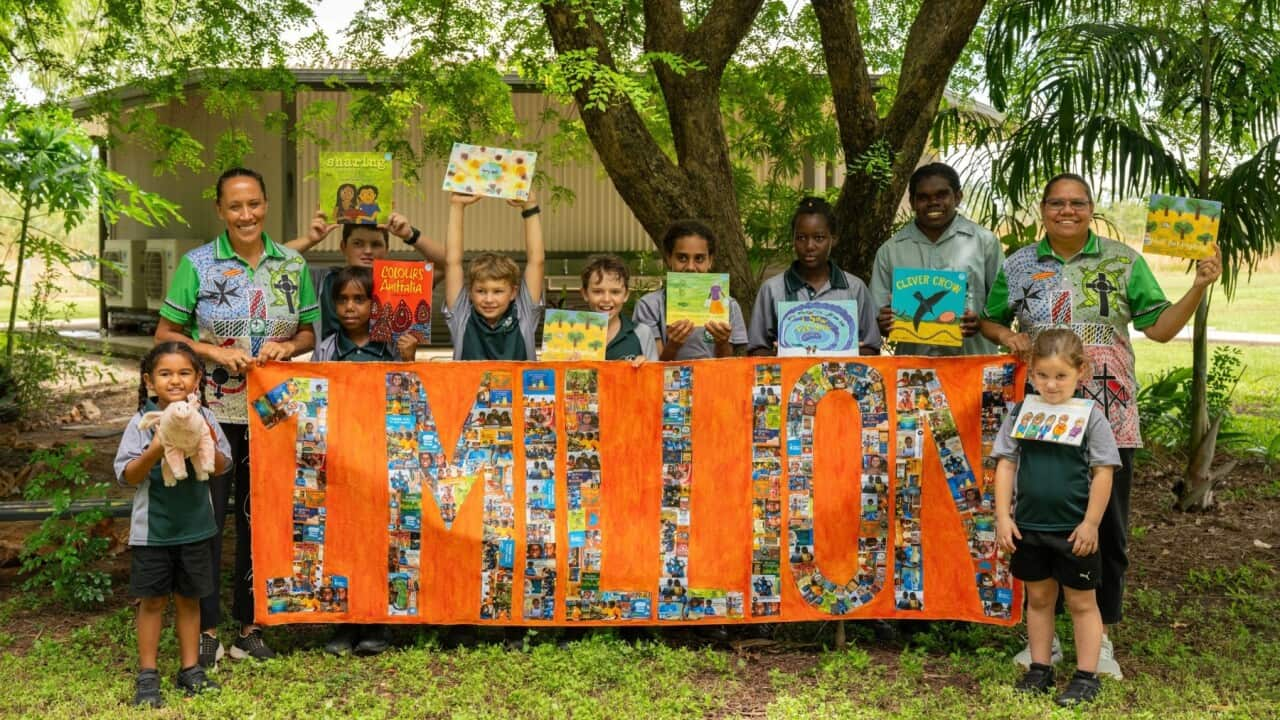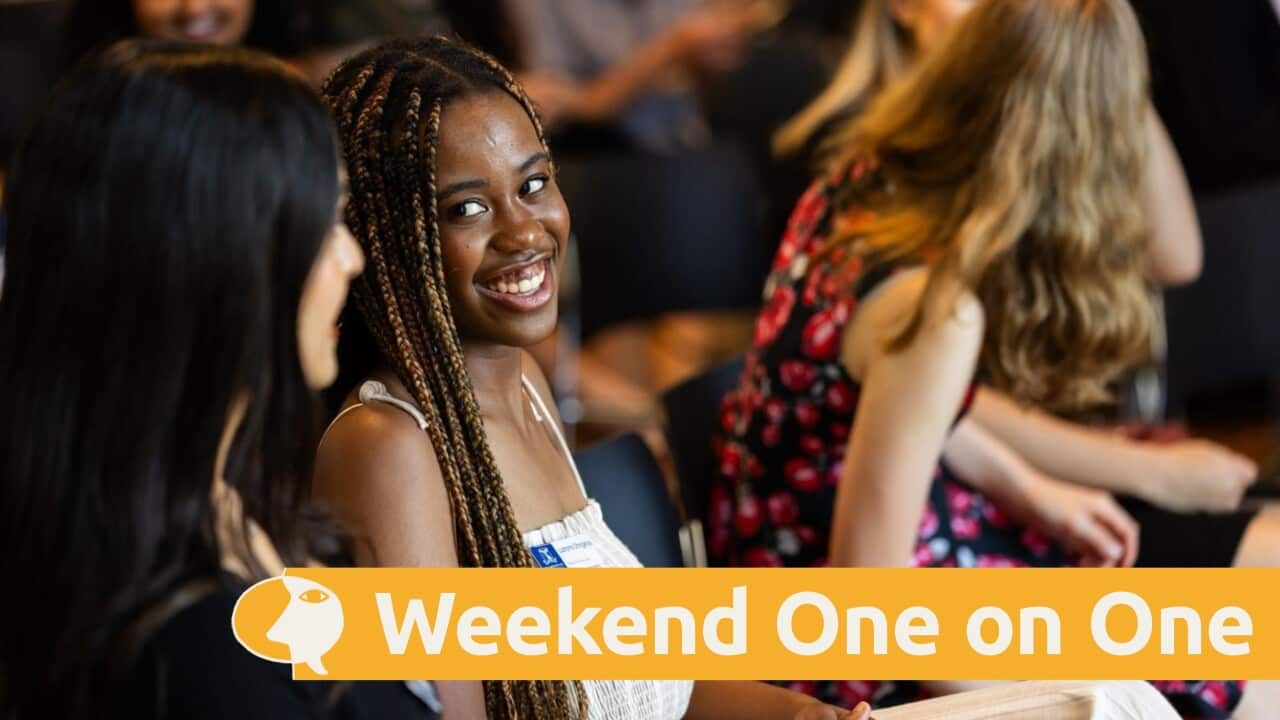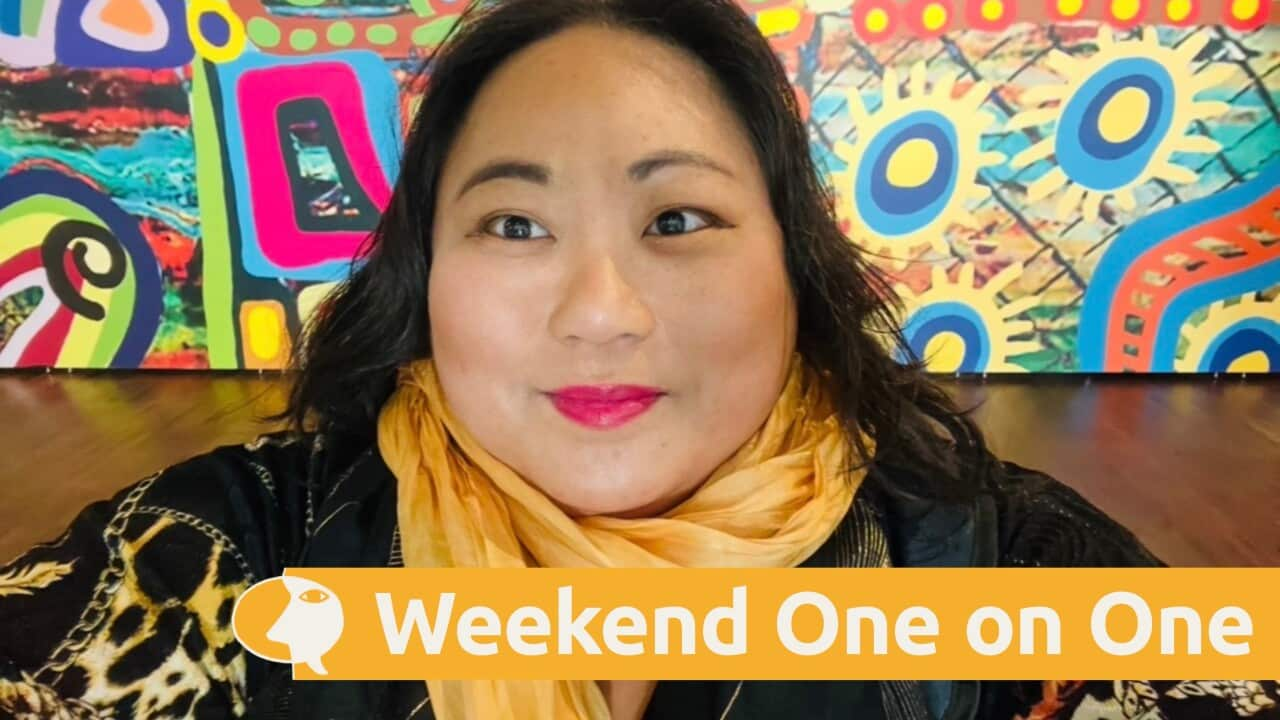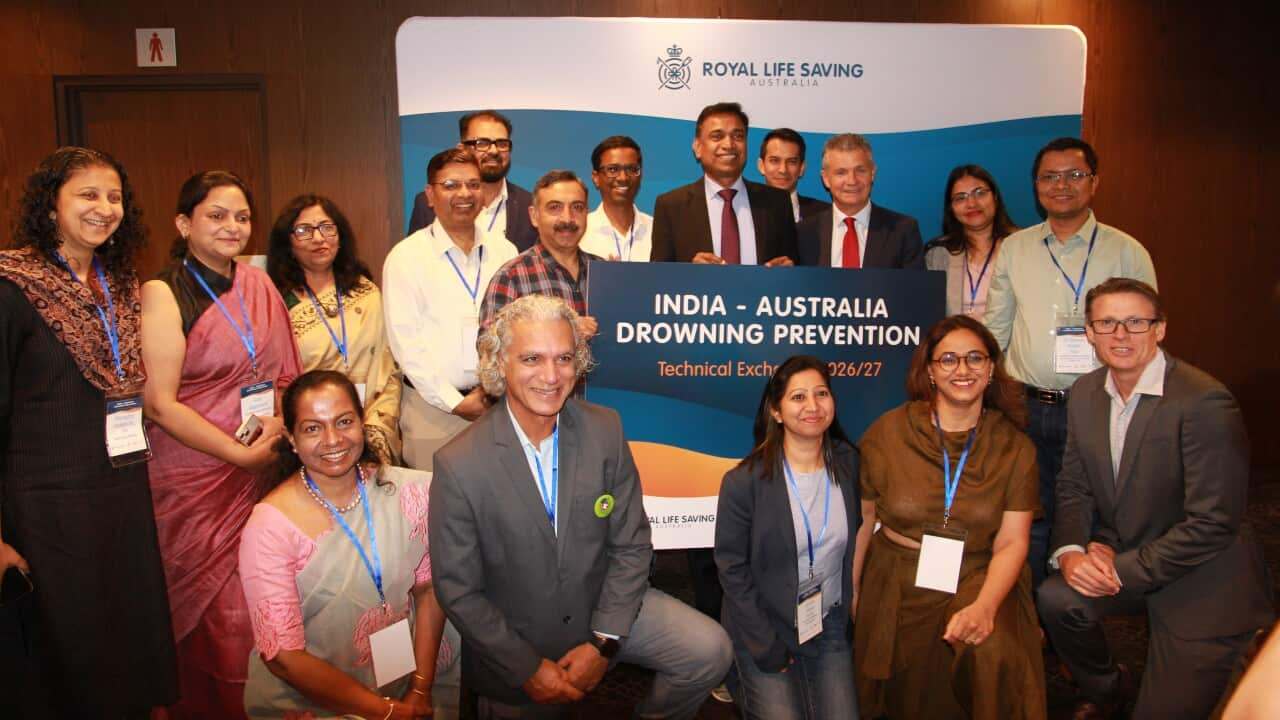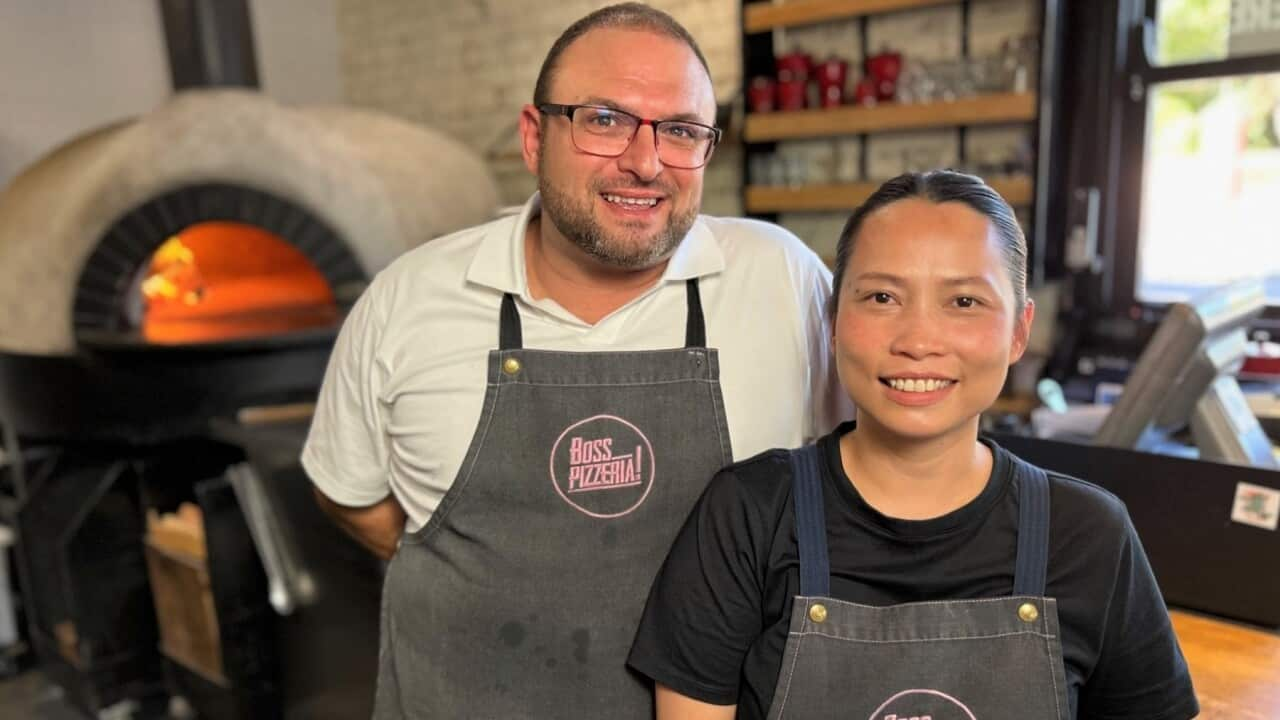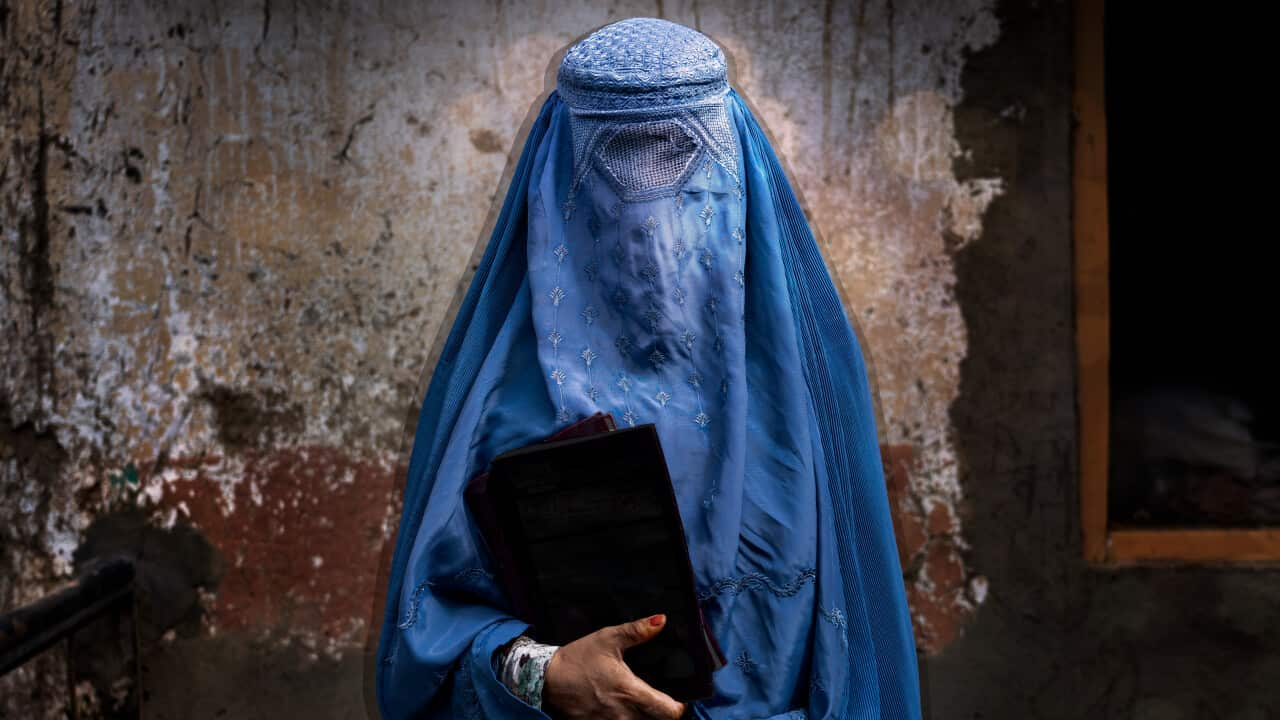Listen to Australian and world news, and follow trending topics with SBS News Podcasts.
TRANSCRIPT
Cindy Manfong is a Jingili Mudburra and Mangarayi woman living in Katherine in the Northern Territory.
Today, she is a publishing projects editor for the Indigenous Literacy Foundation.
But as a girl, books were a rarity.
“I think growing up a lot too, I never, even just being in school and stuff, I never really saw many books that were written or illustrated by Aboriginal and Torres Strait Islander people and just seeing what else is out there too.”
Ms Manfong's colleague at the ILF is a Widjabul/Wia-bul woman, Zoe Cassim, the organisation's Head of Programs.
She says that a lack of books authored by First Nations People was part of a bigger issue.
“If you think about our histories in this country, we've typically been left out of textbooks. And there was a period of time where we weren't allowed to speak our language, we weren't allowed to practice our cultures, and we were put on missions and into different parts of the country that we had never had connection to. So you have generations of people that were removed directly from country and therefore our language and our cultural practices.”
Ms Cassim says from her own experience, access to books broadens horizons and the imagination.
“For me, when I was growing up, books were my escape. Books were my way of going beyond the town that I grew up in. I could imagine fighting dragons and I could imagine wielding swords and that kind of stuff. And it was the most beautiful thing to the point where I love reading stories to my kids, and I love having that kind of escape still.”
The ILF's Book Supply program has given that opportunity to thousands of people in remote communities.
It has just marked a major milestone, providing one million books to hundreds of remote communities across Australia, half of them authored by Aboriginal and Torres Strait Islander People.
These books allow young Australians to see themselves reflected in the books.
Ben Bowen, A Wiradjuri man, is the ILF's CEO.
“We're not just talking about books in cupboards, we're talking about books that are in classrooms, that are in health services, that are in community services, that are in actual people's homes and on bookshelves. There are kids with books now in all these communities and it's incredible to see that change.”
The Book Supply program is the ILF's longest running initiative.
It began in 2004 as the Riverbend Readers’ Challenge, created by ILF Founder Suzy Wilson AM, to raise funds for literacy opportunities in remote Australia.
Zoe Cassim says the logistics of getting the books out to the communities are challenging.
“Catherine is like a hub where things get then sent out to communities - imagine going from our warehouse in Melbourne. They have to then fly to Darwin, travel by truck to Catherine and travel by truck out to these communities. It takes weeks for these books to get to where they're supposed to because access is on a dirt road or it's by helicopter, or it's by barge. It's not just a Big W or a K-Mart. It's not just down the road.”
And logistics like that don't come cheap - and nor do books.
Ben Bowen says ILF only works because of enthusiastic support.
“It's important to, to recognize how many people have helped us get here. This is not something that was done overnight or a flash in a pan. It is something that's taken nearly two decades for us to deliver. There are countless people and too many to name that have helped us get there, but they're all still walking with us. The publishers do look after us and they give us access to these books that quite a healthy rate. But look, even shipping these books out, we couldn't do this without our partner Australia Post. And it's incredible to try to explain how to get a book out to some of these remote communities.”
Mr Bowen says for just ten dollars, they can get a book into the hands of a child in a remote community.
And they've done it a million times.
Cindy Manfong worked for Book Supply for a number of years before transferring to her current role. She says a million books is a very special milestone.
“I have no words to describe it, to be honest. It was really just a special feeling, I guess, knowing that we've hit 1 million because again, when I was doing book supply, we were only up to a couple of thousands or so. So just getting it out there that we've now hit a million is a very incredible feeling.”
Ben Bowen says this just a good start:
“Oh look, another 5 million. I reckon. Look, this is not slowing down at all. In recent years, about four years ago, we were delivering about 70,000 books, 75,000 books. It's gone up to 150,000 books. The demand is growing off our data. We are not even really hitting half the marketplace here. There's a lot of need out there still. And where it's not about saturating the market, it's really about getting good books out there.”
Today, the ILF is not just distributing books - it's also publishing books written by members of remote communities, many of them in First Languages.
So far they have published more than a hundred books reflecting over 30 Indigenous languages.
Zoe Cassim says that project preserves and maintains Indigenous languages and culture, and strengthens a sense of belonging, confidence and wellbeing.
“It's the power of the ILF in supporting communities to tell their stories their way and share their connections and their histories and their cultures with everyone. Because it's a shared history, it's a shared story. And no matter where you are in this country, the moment you set foot on Australian soil, you're on Aboriginal Torres Strait Islander land. And that therefore becomes your history too. So to be able to have books that you see Aboriginal Torres Islander Languages and Cultures, it's a beautiful testament to the intergenerational strength that we have in our communities.”
